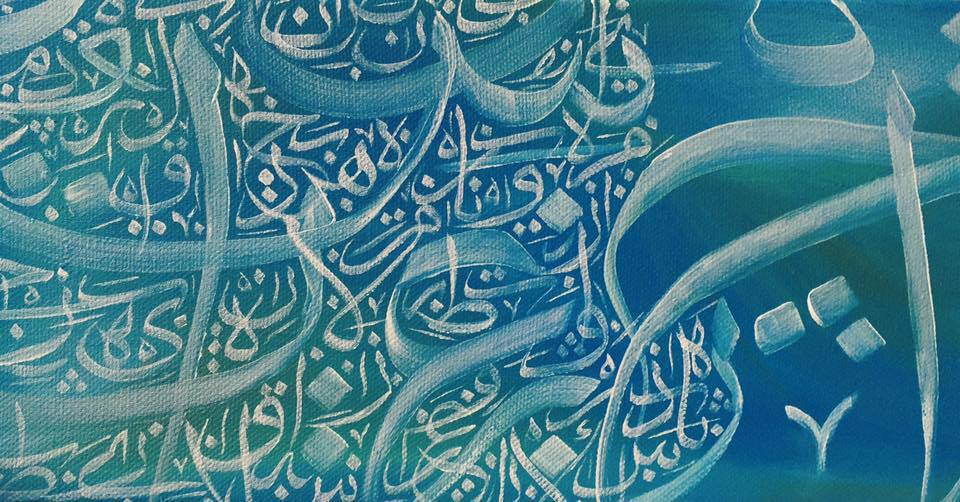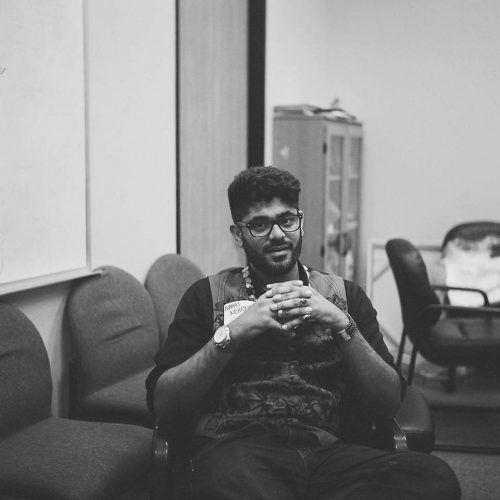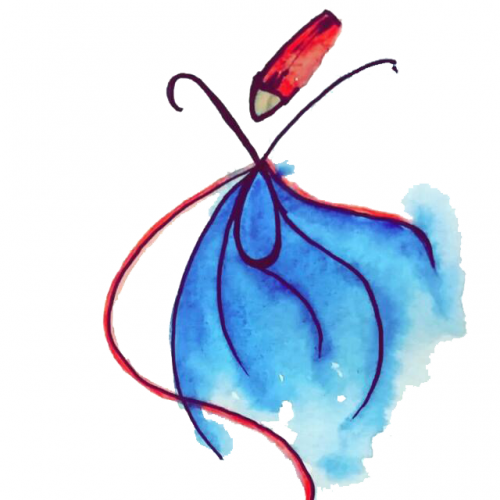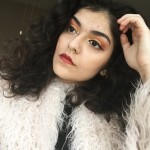
by Suraiya Ali – Follow @iranikanjari
In the past 100 days, this nation has seen a mass mobilization of human beings in a way that many of us have yet to witness as a young generation. There have been protests. There have been riots. There has been a shift in the social politics of this nation as the demand for proper empathy and good governance has now become dire.
In the middle of all of this is the policy fueling public rage — the Muslim ban. You can read on this for hours but still get easily get confused or begin to panic. As people of color, as women, and for many of us, as Muslims — the amount of rhetoric against us is overwhelming. However, the Muslim brown girl doesn’t have to go far to find an organization in this chaotic time.
You’ve probably heard the words Zahir and Batin before. And if you haven’t — I promise this will be better than your Sunday school lessons. In Islam, there is a dichotomy of worldly understanding. Zahir translates to things that are exoteric; the initial meaning, the direct, external understanding or a concept, a person, an idea. Zahir is physical. Zahir is global; it is a community, it can be impersonal. In purely Quranic terms, Zahir is reading the holy book and taking it at face value. Batin is the opposite. In those same Quranic terms it is reading The Holy Book and deriving an interpretation from the words. It is esoteric. It is emotional, mental, sociological. It deals with internal workings or your mind, your emotions, your devotion, and your thoughts. It is purely personal.
At this point, we are aware and in the middle of a protest culture. We march. We speak out. We post furiously on Facebook. We resist physically, we resist globally, we resist in the open. We resist with Zahir. This leaves many of us exhausted, it leaves many us feeling like we aren’t doing something right. Where is the Batin in this fight? Where do we make it personal? How do we resist in an internal way? Enter G.A.M.A.: Gathering All Muslim Artists.
Founded in California’s Bay Area as an adjacent group to the popular Muslim Writers Collective, G.A.M.A. exists as a safe space for Muslim artistic expression. Their event last week in Los Angeles was their first time breaking into SoCal. Brown Girl Magazine’s Suraiya Ali had the privilege to sit down and speak with Abbas Mohamed, director and founder of G.A.M.A, to talk politics, devotion, and the Muslim identity.

So tell me about why G.A.M.A. began and why art matters to the Muslim identity?
Abbas: Every time and place has Muslims, and the Muslims of that time and place have a culture related to that time and place. Right now where we are in the west- there’s an identity struggle taking place, do we hold on to our previous cultures or do we embrace our own?
For example, you can still be a Muslim and be dedicated to Islam if you have a tattoo because that tattoo is a symbol of the culture you’re in right now, can you say you are American by culture, we say it to ourselves, but can you go tell your parents your American? A dichotomy exists there. Every day and age had its poets and poets capture that culture. Poetry and art are a lens to see many things: the love of a mother, a father, a friend, Allah’s love. The essence of Islam today can only be seen through lenses, if we don’t write it down, if we don’t paint it, if we don’t express it- that moment will be lost, and we will never have it again. So to sort of wrap all that up: Muslims Writers Collective came from seeing poetry outside of the mosque, art comes in when you realize there’s nothing for Muslim artists like there has been for Muslim poets, so it’s all about creating that space.
What’s your response to anyone who is uncomfortable or violent against your existence? How do you tackle Islamaphobia with G.A.M.A.?
A: I usually just don’t respond, I’m recognizing my privilege as a Californian in choosing not to engage. GAMA is not the first organization of this nature, but it’s different. Other art groups in the Bay exist specifically to fight islamaphobia through beauty. When I was doing Islamophobia spoken word pieces, it was very exhausting walking into a room full of people and have to apologize for my existence and have to represent a whole monolithic group of Muslims. The thing is, you can change one person’s mind, one room’s mind, but there are so many other people. So to try to take this on and try to engage and and change peoples minds, I think there’s no winning that battle.
We took the direction that instead of engaging with the outside world, we took a look inside: what about the Muslim community? How come I have so many artist friends who have never published their work? Who have never taken themselves seriously? Because for them growing up art was something “shabash beta, do this on the weekend” — if you have great art and a terrible report card you have no worth. So if you’re not going to get empowerment from the family and the community — there’s a gap there. So that’s why we’re focusing internally, that’s why we’re having our events and mosques, in halal restaurants specifically, because that’s where Muslims go. I chose to engage with our people instead of the people who would rather me not be in the country, and fill the gap in our own community. Till we’re cohesive, me changing one person’s mind means nothing, but if we are united, that can cause some serious change.
What message do you have for our readers?
A: We focus on the Muslim artist, not the Muslim art itself, we want the artist to express themselves as an artist first. I had this struggle with my poetry — that as soon as I step into a non-Muslim room, I’m a Muslim poet, and I can’t speak my truth unless I’m speaking my truth as a Muslim.
Our focus at the end of the day is not the art. Which is the focus of many other organizations, they get the art and forget about the artist. My focus is on the artist, and creating that home for them. Giving the artist agency for their art. Ultimately, it’s about connecting the dots for the artist.
If you aren’t a Muslim artist: come and support! Engage and support and just show up and look at the art. This is the first time many of these artists are seeing their art up, so help come and witness that.
If you are a Muslim artist: All this was created for you. To all the Muslim artists, come on home.
There is a serious and advantageous lesson to be learned from efforts like G.A.M.A. — that while we see an exhausting fight ahead of us, silver linings can be found and should be supported within our own communities. If we are able to hold our own and command social spaces with confidence, there is no fight we can’t handle. As brown girl Muslims in particular, remember that you are allowed to take a break from the physical fight and go participate and explore your own Batin, whether that’s through organizations like G.A.M.A. or simple self-love reflection.
Art has always been a driving force in politics, and since brown girl Muslim artists exist, you have a place in this movement too. If you’re in California, more information on G.A.M.A. is included below for anyone who feels so inclined. If you happen to be outside of the state, do a little research: you’ll be surprised to see what organizations exist simply to make sure your voice is heard. And most importantly, never stop creating. Hell hath no fury like a brown woman with a vision and a mission.
 Assalaamu’ alaikum! Allow us to introduce ourselves: we are the GAMA Collective – Gathering All Muslim Artists. Our mission is to bring the American Muslim community together with the inherent beauty and creativity of our tradition and to provide a vital community and support network for our practicing visual artists. You can find more about us and our past events on our website, and follow us on Facebook and Instagram.
Assalaamu’ alaikum! Allow us to introduce ourselves: we are the GAMA Collective – Gathering All Muslim Artists. Our mission is to bring the American Muslim community together with the inherent beauty and creativity of our tradition and to provide a vital community and support network for our practicing visual artists. You can find more about us and our past events on our website, and follow us on Facebook and Instagram.
Founded in the Bay Area in 2016, and with collectives now formed in Los Angeles and New York, GAMA is a registered 501c3 nonprofit organization. With an ambitious event schedule underway for 2017, we are looking to expand our community to include as many artists, professionals and art lovers from the broader Muslim community as possible. We are reaching out now to ask you to fill out the survey so that we can best address the community’s needs going forward.
Although our community is now facing a period of intense adversity at home, we sincerely believe that our art is a source of strength, unity, and self-confidence. Our artists have the means of speaking truth to power and of providing visual proof to the beauty that we know to be intrinsic to our religion. We have no doubt that art is even more essential at times like this than at any other time. As Toni Morrison very clearly put it, “This is precisely the time when artists go to work.”
If you are an artist or are otherwise involved in the creative community or are simply interested in coming to our events – please do take a moment to fill out the brief survey in the link below. We will register your responses and follow up with more artist opportunities very soon. Please forward on to anyone who may be interested and feel free to share your ideas on this thread.
We would love to get to know you, hear your ideas and to work with you soon insh’Allah!
 Suraiya Ali is a student currently living in Dallas, Texas. Her interests include feminist theology, mystic poetry, and the pursuit of the perfect matte lipstick. She wants to eventually couple a business degree with one in linguistics and theology.
Suraiya Ali is a student currently living in Dallas, Texas. Her interests include feminist theology, mystic poetry, and the pursuit of the perfect matte lipstick. She wants to eventually couple a business degree with one in linguistics and theology.




